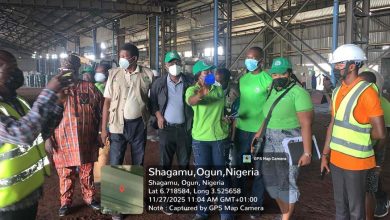First Person: Liberian police inspector working to end sexual and gender-based violence

“I am in charge of cases involving women and children in Nimba County. The most common cases I deal with here are rape, persistent non-support (failure to pay alimony) and domestic violence. Rape is the most common of these cases. It is a very difficult matter to work on, even for those of us with training and experience, because The impact of rape stays with the rest for life.
If a child is abused, they provide counselling, medical and other support but will never fully recover from trauma and even physical damage. This is why I support the work of the Spotlight Initiative to create awareness and share messages on the prevention of rape and abuse of women and children. It is important that we work hard to prevent this violence, and for the perpetrators to be punished.
‘We hear women’
After COVID-19 and Ebola we experienced cases of rape that were very high because the authorities took advantage when children were at home. Women and girls are a very vulnerable population… from time immemorial they have been vulnerable. It was about now that the women were getting into the boat and they heard them.
We have received training in various areas of handling sexual and gender-based violence and how to work with rape survivors. Spotlight is a group that can come to follow us, follow the cases that we have recorded and the cases that are sent to the court. They also collect data on cases.
Through Spotlight, we have seen more women and girls coming forward to report issues by themselves. In the past, it will be done by other community members who have knowledge of law and judicial procedures, but with knowledge created on how to report cases. [women and girls] is coming here in public.
Spotlight has also renovated our office building and provided us with chairs, tables and computers to do our work. They gave us a motorbike for us to follow the cases from far away area.
The spotlight provided placards with messages to ‘stop rape’ and others with ‘rape is a crime’. Some placards explain that people are there to help rape victims, and where they can report cases of abuse. They also have messages for offenders that say ‘if you commit this crime, you will be punished’. People read these cards and change their behavior. Victims and reporters of cases now know they are protected by law if they report. They know that people are there to help them.







